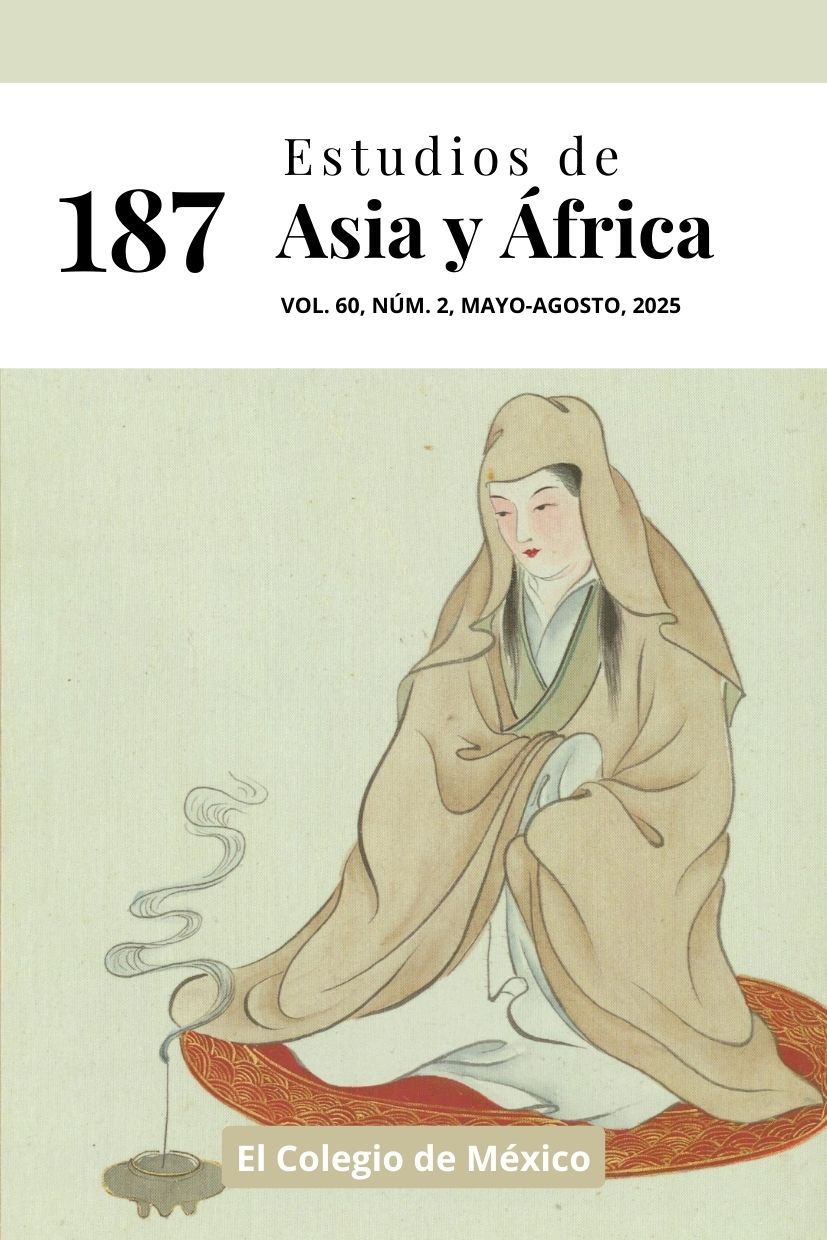Abstract
This is the very first Spanish translation of the preface to the Shi jizhuan 詩集傳 (Collected Commentaries on Poetry), written by the Neo-Confucian thinker Zhu Xi. The preface stands as a condensed explanation of the ambiguously minor, and somewhat controversial, role that Zhu attributes to lyric poetry and, more broadly, to the Five Canons, in the study of the Way. As such, it offers an overview of Zhu’s views on the canonicity of the Shijing 詩經 (Canon of Poetry), its tropological and historical dimensions, and its underlying epistemological and moral tenets. This translation aims not only to make Zhu Xi’s poetics accessible to a Spanish-speaking readership but also to provide an entry point to his aesthetic thought and epistemology.
References
Confucio. 1997. Lun yu: reflexiones y enseñanzas. [論語]. Traducido por Anne-Hélène Suárez Girard. Barcelona: Kairós.
Fuller, Michael A. 2005. “Aesthetics and Meaning in Experience: A Theoretical Perspective on Zhu Xi’s Revision of Song Dynasty Views of Poetry”. Harvard Journal of Asiatic Studies 65 (2): 311-356. http://www.jstor.org/stable/25066780
Hunter, Michael. 2021. The Poetics of Early Chinese Thought: How the Shijing Shaped the Chinese Philosophical Tradition. Nueva York: Columbia University Press. https://doi.org/10.7312/hunt20122
Jensen, Lionel M. 1997. Manufacturing Confucianism: Chinese Traditions and Universal Civilization. Durham: Duke University Press. https://doi.org/10.1515/9780822399582
Jullien, François. 2003. La valeur allusive : Des catégories originales de l’interprétation poétique dans la tradition chinoise (Contribution à une réflexion sur l’altérité interculturelle). París: Presses Universitaires de France.
Jullien, François. 2008. La urdimbre y la trama: lo canónico, lo imaginario y el orden del texto en China. Traducido por Julia Bucci y Gabriela Villalba. Buenos Aires: Katz.
Kern, Martin. 2018. “The Formation of the Classic of Poetry”. En The Homeric Epics and the Chinese Book of Songs: Foundational Texts Compared, editado por Fritz-Heiner Mutschler, 39-72. Newcastle upon Tyne: Cambridge Scholars Publishing.
Kim, Youngmin. 2017. A History of Chinese Political Thought. Cambridge: Polity.
Lam, Ling Hon. 2018. The Spatiality of Emotion in Early Modern China: From Dreamscapes to Theatricality. Nueva York: Columbia University Press. https://doi.org/10.7312/lam-18794
Lee, Pauline C. 2012. Li Zhi, Confucianism and the Virtue of Desire. Albany: State University of New York Press. https://doi.org/10.1353/book14796
Lynn, Richard John. 1982. “Chu Hsi as Literary Theorist and Critic”. En Chu Hsi and Neo-Confucianism, editado por Wing-tsit Chan, 337-354. Honolulu: University of Hawai’i Press.
Nylan, Michael. 2001. The Five “Confucian” Classics. New Haven: Yale University Press.
Rošker, Jana S. 2012. Traditional Chinese Philosophy and the Paradigm of Structure (Li 理). Newcastle upon Tyne: Cambridge Scholars Publishing.
Roth, Harold David. 2013. “The Classical Daoist Concept of Li 理 (Pattern) and Early Chinese Cosmology”. Early China 35: 157-183. https://doi.org/10.1017/S036250280000047X
Scarpari, Maurizio y Attilio Andreini. 2020. Grammatica della lingua cinese classica. Milán: Hoelpi.
Scarpari, Maurizio, Attilio Andreini y Giulia Baccini 2022. Corso di lingua cinese classica e letteraria. Milán: Hoelpi.
Sbvenson Ekström, Martin. 2024. The Origins of Chinese Literary Hermeneutics: A Study of the Shijing and the Mao School of Confucian Exegesis. Albany: State University of New York Press. https://doi.org/10.1515/9781438495408
Van Zoeren, Steven. 1991. Poetry and Personality: Reading, Exegesis, and Hermeneutics in Traditional China. Stanford: Stanford University Press.
Zhiyi Yang. 2012. “Zhu Xi as Poet”. Journal of the American Oriental Society 132 (4): 587-611. https://doi.org/10.7817/jameroriesoci.132.4.0587
Zhu Xi 朱熹. 1980. Shi jizhuan 詩集傳. Shanghái: Shanghai gu ji chu ban she.
Ziporyn, Brook. 2008. “Form, Principle, Pattern, or Coherence? Li 理 in Chinese Philosophy”. Philosophy Compass 3 (3): 401-422. https://doi.org/10.1111/j.1747-9991.2008.00135.x
This work is licensed under a Creative Commons Attribution-NonCommercial-NoDerivatives 4.0 International License
Copyright 2022 Estudios de Asia y África



